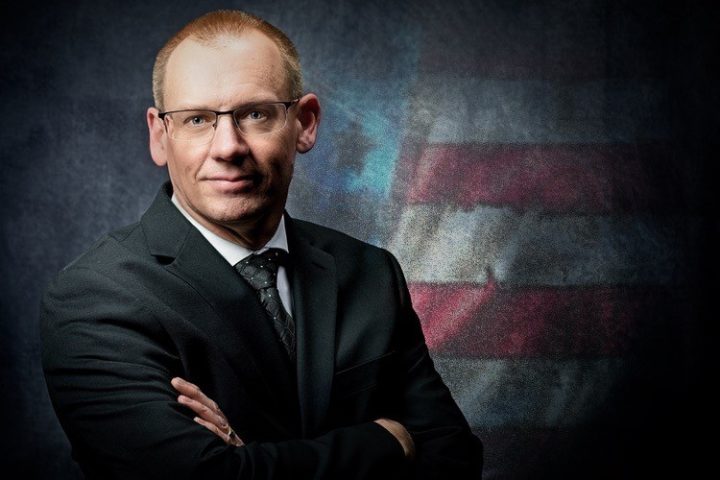
Last week, Navigator CO2 announced they were pulling their request from the Iowa Utilities Board that sought a permit to install a 1,300-mile carbon-capture pipeline. The news was enthusiastically embraced by the grassroots opposition who battled this to protect property rights. We’ll look into the details of this and remind you that there are two other pipelines currently being pursued, so we must not get complacent. All in today’s Analysis Behind the News.
If you’re concerned about American independence and freedom, then please watch and take the recommended actions. Also, be sure to like, share, and subscribe, so we can break through Big Tech censorship and reach many others.
In case you’re not familiar with the battle for property rights in some of the Midwest and Plains states, landowners are having to battle efforts by three carbon capture pipeline companies to get signed easements or have their land confiscated through eminent domain. All to bury pipeline that would carry highly pressurized carbon dioxide captured from more than 30 ethanol and fertilizer plants to deposit into old oil wells in Illinois and North Dakota. These pipeline companies are Navigator CO2, Summit Carbon Solutions, and Wolf Carbon Solutions.
According to a press release posted at its website, Navigator CO2 wrote, “The development of Navigator CO2’s pipeline project has been challenging. Given the unpredictable nature of the regulatory and government processes involved, particularly in South Dakota and Iowa, the Company has decided to cancel its pipeline project.”
The Iowa Capitol Dispatch reported why South Dakota was a challenge to Navigator. “In September, the company suffered a setback in South Dakota when the state’s Public Utilities Commission denied it a permit, partly because its route did not conform with county ordinances that restrict the placement of such pipelines.
Navigator then asked state utility regulators in Iowa to suspend its permit process while it awaited a decision from Illinois regulators. Less than two weeks ago, it asked to pull its permit application in Illinois.”
South Dakota’s Public Utilities Commission is an elected body. The three members heard testimony from Summit Carbon Solutions that it could not obey the ordinances of the counties that had enacted setbacks to protect the public and landowners. Keep in mind that these were four counties out of a total of 66 in South Dakota. Subsequently, the permit was denied. Navigator’s permit was denied mainly because it “Failed to prove that the project will not pose a threat of serious injury to the environment or to the economic condition of the inhabitants or expected inhabitants of the siting area.”
Even though Navigator has said it will not continue the pipeline, the Iowa Capital Dispatch reported that as of last Friday, “Navigator hadn’t filed a motion to withdraw its permit request in Iowa.”
No word if that will happen soon, or if the permit will just be abandoned, or if this is just a PR move to lay the groundwork for something bigger.
Navigator’s alleged cancelling of its pipeline has led to speculations of the company working with Summit Carbon Solutions to expand its pipeline project to cover Navigator’s.
Summit Carbon Solutions commented about Navigator cancelling the pipeline to the Iowa Capital Dispatch, saying it “welcomes and is well-positioned to add additional plants and communities to our project footprint.”
Read that loud and clear. There’s a real possibility the project will come roaring back to life under Summit. Those working against these pipelines need to understand that there is no time for celebration. Your property may still be in danger of eminent domain, something that Summit Carbon Solutions has already tried to exercise in South Dakota by suing more than 80 landowners. Let us recommend that you do not let up. Keep working through your county boards and your state legislators to strengthen property rights.
Visit JBS.org/farmers for helpful resources to do just that.
According to Navigator, it did not get signed easements from landowners. Rather it received signed option agreements for easements that will expire in a few years.
So, not having seen a copy of these, we have to ask, “Are these transferable to another company? Will Navigator sell these to Summit? Or to Wolf Carbon Solutions?”
FarmWeekNow.com reported, “Bill Bodine, Illinois Farm Bureau director of business and regulatory affairs, said landowners who entered agreements with Navigator should consult with legal counsel to determine the status of those agreements.
‘If landowners have entered negotiations with the company but haven’t completed an agreement for right of way or access to property, then those conversations are going to end now because the company has announced that they’re not continuing the project,’ Bodine said.”
Summit Carbon Solutions has said it has signed easements with up to 75 percent of landowners along its proposed route. Some of these are from property owners that feel they have been forced into signing and hope that their neighbors will put up enough of a fight that the pipeline will not go through.
However, those that have signed should be checking with their insurance companies because we have copies of letters to policy holders from their insurance company telling them that if they allow a carbon capture pipeline onto their land that their policy is at risk of being either terminated or not being renewed.
So, delegating the fight over to your neighbor comes at a price, which may be much more costly than first realized. What will it take for landowners to take a stand for property rights? Perhaps when it gets as bad here as it is in the Netherlands?
Here’s some advice from Rob Roos, a Dutch Member of the European Parliament. He was asked by the European Conservative, “The Netherlands is probably one of the countries in Europe that is most committed to the green agenda. What damage are these policies doing?”
“Enormous damage. We had a lot of confinement in Europe because of COVID-19, and in the Netherlands we are still suffering from nitrogen confinement. We have the most restrictive energy regulation in Europe and for that reason we cannot build more houses or new infrastructure, and sometimes we are even prevented from repairing what we have. Our economy is in a straitjacket, and the damage being done is quite profound. This is not because nature is at risk, but because the models they follow show that nature is at risk. Those responsible for these policies are the Greens, but also the liberals led by Prime Minister Mark Rutte, who seem to want to transform our country into a nature park.
This madness is the responsibility of politicians, mostly young and well-educated with good social skills, born and raised in the cities, who tell our farmers how they should live. It is ridiculous. We are a very small country, and these policies have a tremendous economic cost. We are losing our ability to make money or to invest in new homes, which will mean a darker future for our children, so we are not a good example for Spain or any other country.”
That’s what gets lost in all of these pipeline battles. Why are the pipelines being proposed in the first place? Because the carbon capture industry is a pillar of President Biden’s climate change agenda. An agenda that is being used to strip property rights, individual liberties, and overall freedom from every American. An agenda that will leave you owning nothing, including the ability to make choices and decisions. An agenda that is ushering in total control over you under the guise of the greater good. It’s a tyrannical solution in search of a problem.
Last year over 1,100 scientists signed a declaration stating that there is no climate emergency.
Let that sink in. For, if there is no climate emergency, then what is the purpose of essentially reorienting all of humanity to combat a non-problem? If there is no climate emergency, then billions, if not eventually trillions of dollars vanish for carbon capture piping and sequestration, for solar panels and wind projects, for electric vehicles, for smart cities, for many layers of unconstitutional government and worldwide bureaucracy that will not be needed.
Carbon capture pipelines are merely a battle within a much bigger war. One that includes an installation of world government under the United Nations. Coalescing to the climate establishment means giving up your way of life, liberty, and the pursuit of happiness. If you’re not willing to give that up, then you need to be involved in this fight.
Even if you don’t own land in these states, there are at least $30 billion earmarked for carbon capture pipelines from Congress, with a goal of installing an average of 60,000 miles of pipe across the U.S. Don’t think that your community won’t be affected.
But there are reasons to be optimistic. All of the setbacks that these pipeline companies have encountered have been because of organized opposition. Landowners that have gotten together and organized to fight for their rights.
Navigator may be out — at least publicly they have declared it. Due to opposition, Summit has just announced that the launch of its pipeline is delayed until 2026. And Wolf is also facing stiff opposition.
When Americans are organized, we win. Join The John Birch Society, and we’ll show you how. Members may already be working in your community.
I’m Bill Hahn for The John Birch Society, and until next time, learn more and take action!



